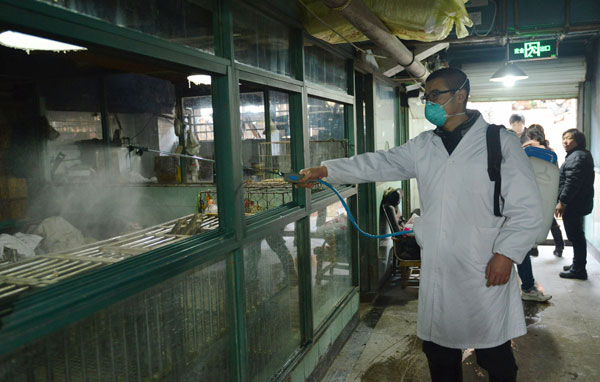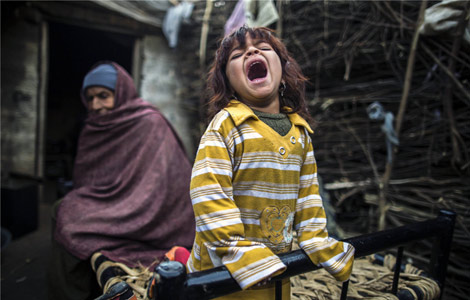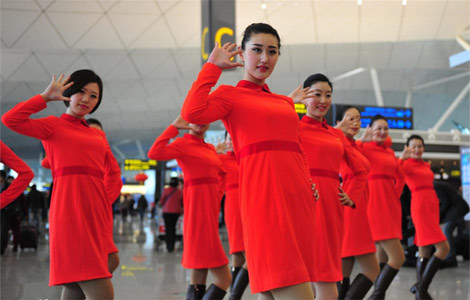Hangzhou closes live poultry markets to combat bird flu
Updated: 2014-01-25 03:09
By WANG HONGYI in Shanghai (China Daily)
|
||||||||
Hangzhou, the capital of eastern China's Zhejiang province, has suspended the trading of live poultry in order to halt the spread of the H7N9 bird flu virus.
The city banned the trading in its main urban areas on Friday, according to local health and industrial and commercial departments.
 |
|
Staff from Hangzhou's disease prevention department sterilize a closed poultry market on Friday. Long wei / for china daily |
Staff from the city's disease prevention and control department will sterilize the closed markets, and live poultry such as chickens, ducks and other birds will be collected, inspected and treated, according to local health authorities.
The city also will closely monitor domestic fowl at poultry farms, as well as the habitats of migratory birds, authorities said.
"Local urban management departments also will increase the supervision of residents who raise poultry," said Wang Boli, an official with Hangzhou's industrial and commercial department.
"In addition, we will expand daily patrols in case peddlers try to sell live poultry illegally," he told China Central Television.
On Friday, the province reported seven new human H7N9 cases, bringing the province's total to 44, the highest in the nation.
The province has logged new H7N9 cases for 16 consecutive days.
Officials from the disease prevention and control department said contact with live poultry and exposure in live markets are the major ways the virus's spread.
In Zhejiang's next-door neighbor, Shanghai, similar measures are planned during the Spring Festival holidays and beyond.
The city has reported three new cases of H7N9 bird flu since Monday, including two deaths: that of a 31-year-old doctor and a 77-year-old farmer.
The city has reported a total of eight cases so far this year.
According to the municipal government, live poultry markets will be closed from Jan 31 to April 30.
China is set to celebrate one of its most important holidays, Spring Festival, starting next week. To usher in the Lunar New Year, Chinese residents traditionally dine on freshly butchered poultry during the holiday season, which usually lasts several weeks.
"Newly butchered chicken and ducks are the irreplaceable dishes at the family feast each year," said a woman surnamed Yang.
"To prohibit the live poultry trade makes me feel uneasy. But it's understandable — after all, health and safety are the main thing."
Medical experts say that so far, H7N9 bird flu cases have been scattered and there is no evidence to believe that the virus can be spread from person to person.
Experts also suggest that people be vigilant about hygiene and avoid contact with live poultry.
Most Viewed
Editor's Picks

|

|

|

|

|

|
Today's Top News
Li seeks 'good beginning' to economy in 2014
CPC rolls out 'mass line' rules
China reports 6 new human H7N9 cases
China seeks to attract skilled foreign workers
NSA phone program illegal
Abe told to face up to wartime past
Cities halt live poultry trading
State Council mulls work report
US Weekly

|

|













